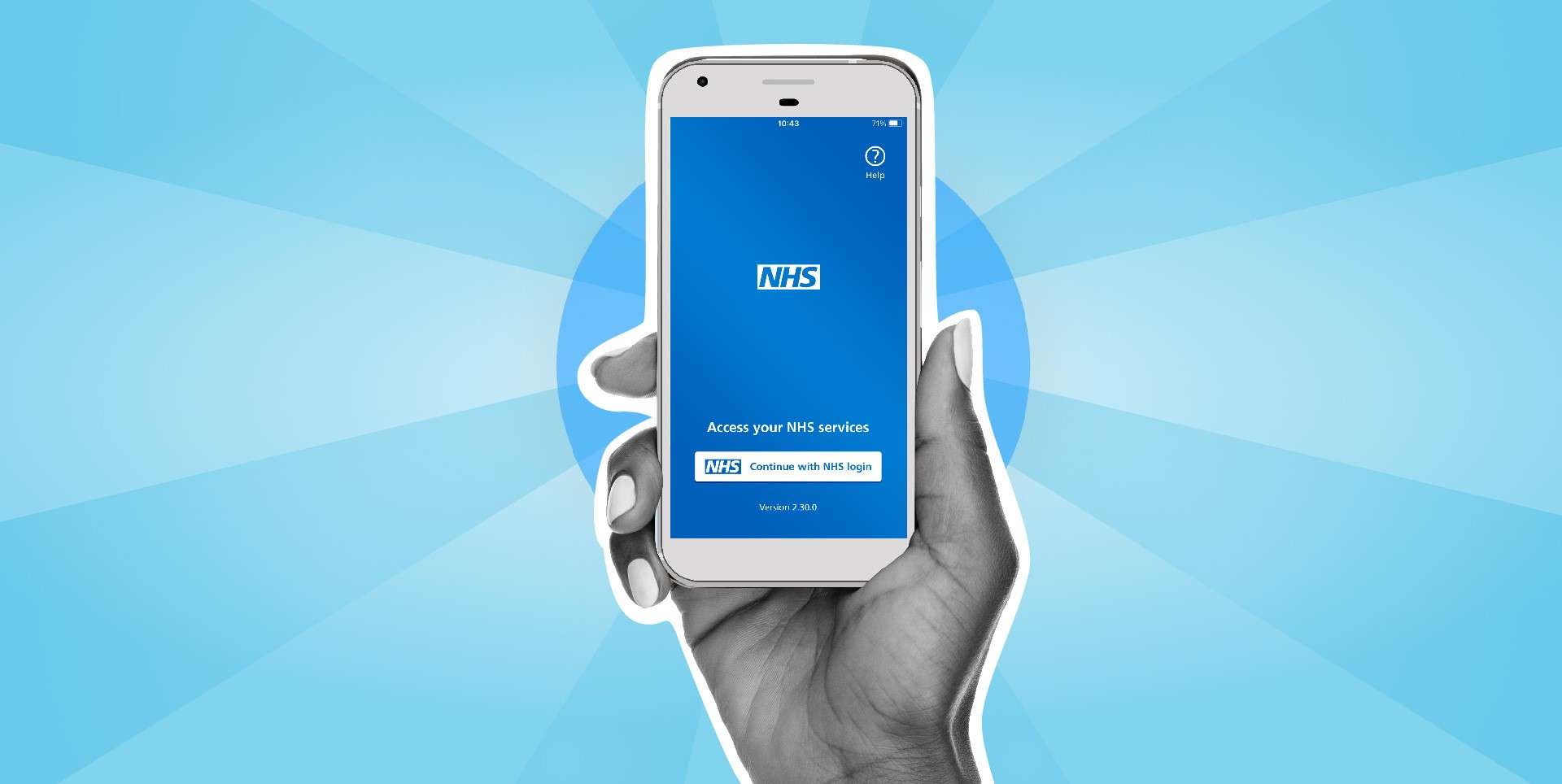Research director Tom Denwood explains how the national digital services agency has helped use information to better understand issues including effective treatments for Covid-19 and the impact on patients suffering from other conditions
Credit: Peter Byrne/PA Wire/PA Images
Supporting the research community has never been more important.
By providing researchers with rapid access to routinely collected health data, we are helping them research effective treatments for Covid-19, giving the medical community essential insights into the disease, and getting ready for vaccine trials.
The aim is to create a perfect circle of secure data – where data from the clinical front line or direct from citizens is collected and curated by NHS Digital as the national safe haven of healthcare data.
Our deep data science and data access expertise rapidly supports the UK’s cutting-edge research community, which then through trials, vaccines and studies, supplies learning and action back to the clinical front line. A learning health system on a national level.
NHS Digital has been at the forefront of this throughout the pandemic; working in partnership with the research community to deliver a faster and co-ordinated response to the global pandemic, while protecting citizens’ data rights.
We cannot rest on what we have done; we need to, and will, keep developing, keep pushing the boundaries of what we can do as the data engine supporting UK health research
When tackling the challenges of a pandemic, researchers need to have the very latest picture of what is happening across the country in health and care.
To support this, back in March, two Covid-19 public health directions were published by the secretary of state for health and social Care and NHS England; enabling NHS Digital to establish and operate processes and information systems to collect and analyse data in connection with Covid-19. The secretary of state also issued a Control of Patient Information notice; our response to Covid-19 used these, and our application of these robustly protected citizens data rights.
An example of their use was when the British Medical Association and Royal College of General Practitioners raised their concerns about the large volume of data that GPs were being asked to provide to various organisations. They were at risk of becoming overwhelmed at the exact point when they were having to make a seismic change in the way they provide care.
We responded to their concerns by modifying an existing central service, to collect and disseminate the GP Data for Pandemic Planning and Research. Today, 96% of GP practices in England agreed to participate, and following advice from the GP profession and an independent group, this data is now available to key clinical trials, the Office of National Statistics, and other urgent needs on a fortnightly basis.
96%
Proportion of GP surgeries taking part in NHS Digital scheme to collect and disseminate data
One third
Reduction in mortality rate through use of dexamethasone
35%
Reduction in hospital admissions in last week of March from what would otherwise have been expected
100,000
Number of people that had signed up for vaccine trials as of 17 August
We also collected additional data sets, for example on hospital lab tests, intensive care data, and cardiovascular disease.
Meanwhile, we accelerated access to our existing datasets for researchers. For example, we moved from monthly Hospital Episode Statistics, to using the weekly and more raw Secondary Uses Service (SUS+) data about hospital activity, and started providing monthly ONS civil registration death data on a weekly basis, providing linked access to new data assets in record time.
Data saves lives
This might sound like hyperbole, but it all comes down to practical impact. How can secure, rapid access to data really impact on a global pandemic and improve citizens’ lives?
Data, curated by us and serviced through the NHS DigiTrials, enabled the RECOVERY randomised controlled trial, led by the University of Oxford, to pinpoint dexamethasone as a powerful treatment for coronavirus. The study identified that for patients on ventilators, the treatment was shown to reduce mortality by about one third, and for patients requiring only oxygen, mortality was cut by about one fifth. Dexamethasone became a recommended treatment in the NHS within 24 hours of the finding being published, and globally by the WHO shortly thereafter.
We have joined with NHS Blood and Transplant to determine which previous sufferers of Covid-19 were suitable to be invited to take part in convalescent plasma trials, and provided their contact details, to see whether providing antibody-rich plasma to coronavirus patients can help them beat the disease. This is now an arm of the RECOVERY trial.
Researchers from the British Heart Foundation have taken advantage of a new service that we have launched with the National Institute for Health Research (NIHR) and Health Data Research UK called the Trusted Research Environment, which is providing them with access to the data they need for analysis and research via a hosted, secure analytical platform, and supporting them with the understanding and analysis of that data. This data will be used to explore crucial cardiovascular research questions using tailored linkages between different datasets to bring new insights and accelerate the speed of research.
For example, a group of researchers from several academic institutions, led by the University of Oxford, used this approach to determine the impact of the pandemic on cardiovascular hospital admissions.
Data found that there were 35% fewer hospital admissions than expected in the last week of March with a diagnosis of heart attack, highlighting the hidden impact of the pandemic on those with non-Covid conditions.
By using the reliable data we provided to track the trends as they developed, it concluded hospital admissions with a diagnosis of heart attack in England fell between mid-February and the end of March 2020 as the COVID-19 pandemic developed – with 35% fewer admissions than expected in the last week of March. This highlighted the hidden impact of the pandemic on those with non-Covid conditions, helped inform NHS England policymaking, and influenced the ‘reopening the NHS’ guidance issued to hospitals. A learning health system in action.
Understanding the impact of Covid-19 for people from ethnic minorities was also extremely important, and so we supported a collaboration between academics from the University of California and the University of Cambridge. We linked five different datasets to provide depersonalised and non-disclosive data that showed that people from a BAME background were more likely to be diagnosed with Covid-19 and more likely to be admitted to hospital and intensive care due to it – and at a younger average age. We then provided this to Public Health England who led the national review.

It is not just important to provide data and analysis, though. We can also build and host interactive services that provide practical support to the research sector, such as the NHS Covid-19 vaccine research registry. This service was developed in conjunction with the NIHR for the Vaccine Task Force and is accessed via the NHS website. This not only provides a quick and easy way for members of the public to sign up for vaccine trials, but it also gives researchers a ready pool of willing volunteers to help boost their clinical trials and help them find a vaccine quicker. You can sign up here.
Looking at the huge steps that have been taken over the last six months in our data services, I am immensely proud of what we have achieved together with research colleagues. New data sets, innovative linkages, entire services set up to meet the urgent needs of the community to support them to respond to the pandemic and demonstrate the best of UK health research, all while keeping patient data secure to the highest ethical standard. There are so many other data sets and so many other worthy projects that could have been mentioned here.
We cannot rest on what we have done, though. We need to, and will, keep developing, keep pushing the boundaries of what we can do as the data engine supporting UK health research.
We are immensely fortunate to have a Research Advisory Group, jointly chaired by the leaders of the Medical Research Council and DHSC Science, Research and Evidence, and with a wide range of members, to guide us on our journey.



